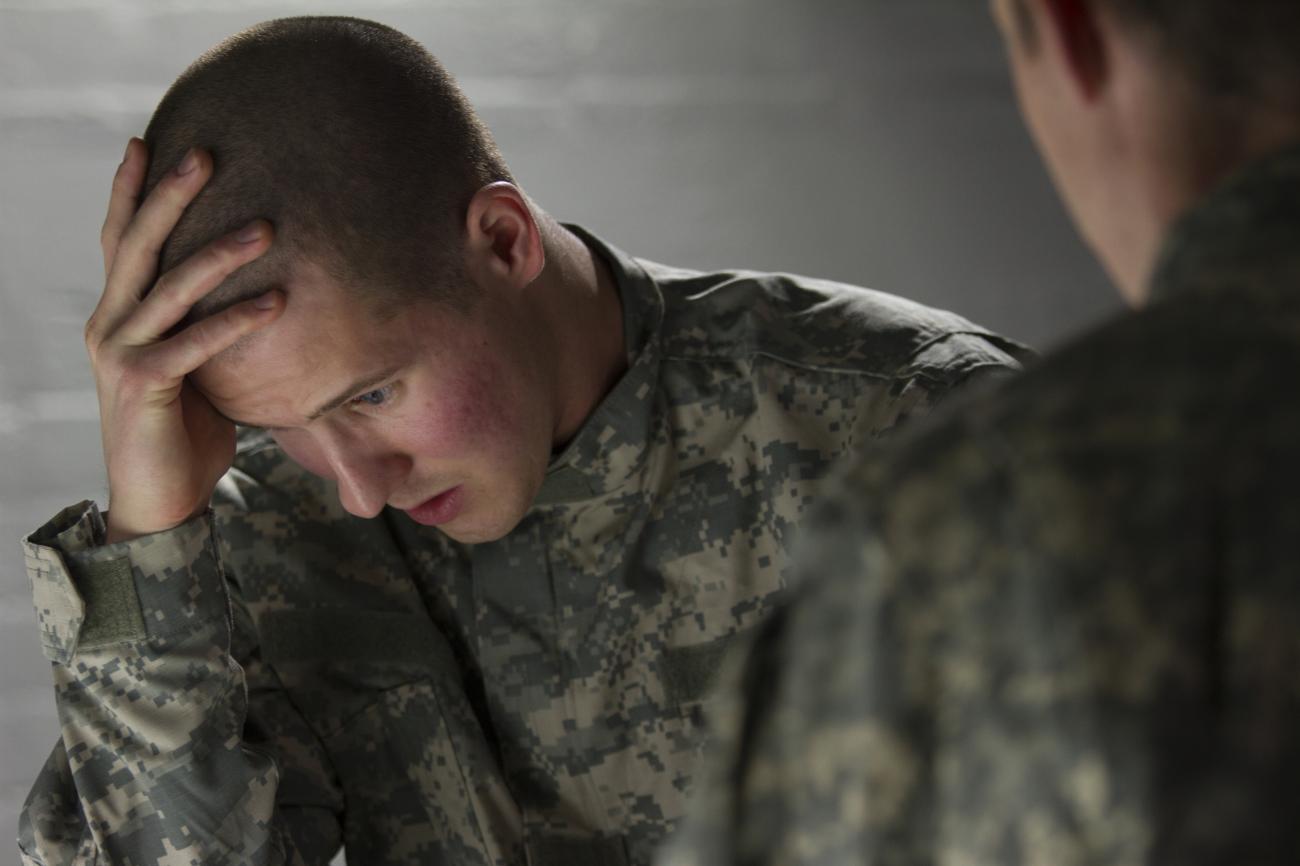
Remembrance Day has come and gone but the struggle continues for many veterans, as well as law enforcement, first responders, and civilians living with post-traumatic stress disorder (PTSD). VCH Research Institute clinician scientist Dr. Julia Ting shines some light on the dark topic of PTSD.
Q: What is post-traumatic stress disorder (PTSD)?
A: PTSD is a disorder that can affect individuals who have been exposed to one or more traumatic event(s). In adults, the symptoms can be broken down into four main categories: 1) intrusive symptoms such as having unwanted thoughts, dreams, memories, feelings, and physical reactions related to the traumatic experience; 2) avoidance symptoms such as efforts to avoid memories, thoughts, feelings or other reminders of the traumatic experience; 3) changes in mood and thoughts related to the traumatic event; and 4) changes in reactivity, such as an increase in irritability, recklessness or self-destructive behaviour, poor concentration, or strong startle response.
Q: How do I know if I have PTSD?
A: It’s very important not to self-diagnose PTSD. If you, a close family member, or close friend have been exposed to actual or threatened death, serious injury, or sexual violence, you should be evaluated for symptoms of PTSD. The first step is to talk with your family physician. He or she can do a screen for you and refer you to the right specialists, if needed. It is important to remember that not everyone who experiences a traumatic event will go on to develop PTSD.
If you are an active or veteran member of the Canadian Forces or the RCMP, you can talk with your Veterans’ Affairs case manager, your health services officer, or medical officer about a referral to the British Columbia Operational Stress Injury Clinic (BC OSI Clinic) for an assessment.
Q: What are the biggest misconceptions about PTSD?
A: The biggest misconception about PTSD is that people with PTSD are dangerous. " Because there has been a lot of news coverage around military personnel with PTSD, I think a significant amount of fear has developed around this particular group of people. Having PTSD does not in and of itself make someone dangerous.
Q: What do you want people to know or better understand about PTSD?
A: PTSD is an illness that is very treatable. Depending on the study, upwards of 80 per cent of individuals diagnosed with PTSD can find some relief of symptoms with appropriate treatment. Treatment can include psychotherapy, medications, or a combination of the two. Treatment requires a lot of hard work but many individuals who have PTSD are able to maintain jobs, have meaningful relationships, and lead healthy and active lifestyles.
Q: Why is it so important to raise awareness about the prevalence of PTSD, particularly among Canada’s veterans and law enforcement officers?
A: Having PTSD can feel very isolating and sometimes it’s that feeling of being alone and perceiving the symptoms as never-ending that lead people to think about giving up all together. It’s important to raise aware about the prevalence of PTSD that people suffering from PTSD do not feel alone. It is also important to get the word out there that there are programs that offer treatment for veterans and active members of the Canadian Forces and RCMP. In B.C., we have the BC OSI Clinic, which is part of a national network of clinics across Canada dedicated to serving active and veteran members of the Canadian Forces and RCMP who suffer from service-related psychological injuries.
Q: What are some effective ways to treat PTSD?
A: At the BC OSI Clinic, we use individual psychotherapy, couple’s therapy, group therapy, family therapy, medication management, or any combination of the above for treating PTSD. Treatment plans are created after a thorough assessment of an individual’s symptoms and needs.
Q: What can I do to help a friend who has PTSD?
A: Encourage your friend to talk to his or her family physician or a mental health professional. Give your friend a listening ear when they need it. It’s important to let your friend know that, even though you may not fully understand what they are going through, you care about them and will support their efforts to get help.
It’s also important to never pressure friends to tell you about their trauma story and never to say anything along the lines of “It could be worse…”



